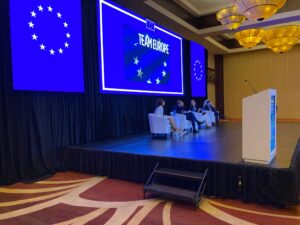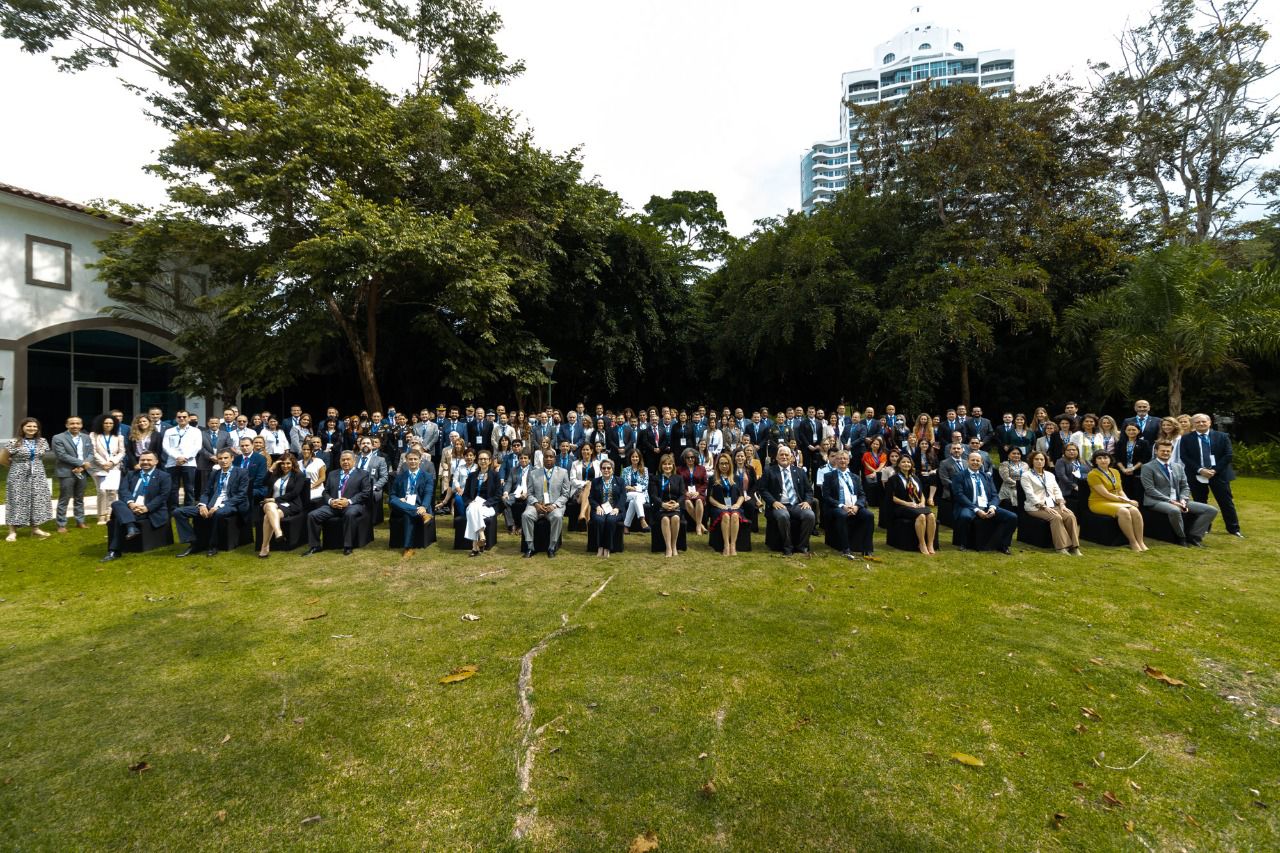After a year of forced interruptions caused by the restrictions arising from the coronavirus pandemic, the European cooperation programme EL PAcCTO held its Annual Programme Meeting in Panama City with attendance in person. Dominated by a topic whose investigation and debate are currently in full swing, the financing of crime, this meeting comes with a catchphrase for the participating institutions to reflect upon: how it affects us, how to combat it.
In this context, in view of the challenge of all European and Latin American security institutions of combatting these illegal cash flows, EL PAcCTO has brought together more than 150 experts on the subject from European and Latin American institutions.
At the end of the event, the Declaration of Panama was read, which has been promoted by EL PAcCTO and reflects the concern of the participating countries regarding a “phenomenon that is acquiring worrying proportions worldwide and that requires a change in strategy and proactive, coordinated and innovative responses that go beyond international borders and are built using constructive dialogue and effective cooperation among different actors”.
The Declaration includes some specific actions to be carried out, such as the adaptation of legislation on the matter to ease identification of the proceeds of crime, the use of the processes of confiscation or dissolution of domain, the development of technological tools to facilitate access to digital information, or the strengthening of technical skills and specialisation in financial crime of those charged with the investigation and prosecution of these matters.
Also underlined is the importance of the joint work of the European Union, Latin America and the Caribbean and other regional, Latin American and European bodies to build structured models of inter-institutional coordination and international cooperation.
“Depriving criminals of their financial resources is the most effective way to combat crime”
For two days, more than 150 specialists have addressed the way to face this problem from a global perspective: where this money comes from, how this problem can be faced or how institutions can cooperate with each other to combat it. Without a doubt, for the participants, the coordination and specialisation of the institutions will play a key role in the future.
Top institutional representatives who participated in the opening: Chris Hoornaert, ambassador of the European Union in Panama, highlighted that, “due to its importance in Panama and in the Latin American region, the finances of organised crime are a problem of the utmost importance confronting it”. For his part, Jorge de la Caballería, Head of Unit B1 of the General Directorate of International Alliances of the European Commission, delved deeper into the subject: “Depriving organised crime groups of economic and financial resources is the most effective way to combat it. All this involves evolving legislation, specialisation of actors in the criminal justice system and better international cooperation tools.”
Also present were the Presiding Judge of the Criminal Chamber of the Supreme Court of Justice of Panama, María Eugenia López Arias, who has referred to this money as a “reality that allows neither a truce nor rest for the institutions combatting organised crime”, and the Vice Minister of Public Security of Panama, Ivor Pittí, who opted for “the strengthening of international cooperation”, since “organised crime can only be tackled by working together”.
The challenge of combatting crime finance
In addition to sowing terror and destruction wherever they operate, organised crime offences such as drug trafficking, human trafficking or the trafficking of wild animals are financed through the “opaque” money of organised crime, and generate profits for criminal organisations that translate into in figures in the millions.
According to the United Nations Office on Drugs and Crime (UNODC), the money generated by criminal activities worldwide represents about 4% of the global GDP. Although it is illegal money, it is these multi-million amounts that make organised crime one of the financial sectors that move the most money worldwide.
Likewise, crime finance seriously affects the economic and social growth of countries, discouraging public and private investment. It weakens institutions due to corruption and reduced tax revenues, and hampers an effective fight against transnational organised crime.
The Europe Team Initiative on Governance, Justice and Security
During the opening speech, the initiative “Team Europe on Governance, Justice and Security” was presented. This aims to generate international associations in this area, which the European Union can use to leverage the contribution and added value of the European actors that participate in it.
Jorge de la Caballería, head of Unit B1 of the General Directorate of International Alliances of the European Commission and Claudia Gintersdorfer, Head of the Americas Division of the European External Action Service, presented the initiative, which has a three-pronged objective: strengthening regional and intercontinental cooperation networks to combat organised crime, dismantling the main transnational markets for organised crime in Latin America and the Caribbean, and reinforcing the rule of law in the region.

About EL PAcCTO
EL PAcCTO (Europe-Latin America Assistance Programme against Transnational Organised Crime) is an international cooperation programme financed by the European Union that seeks to contribute to security and justice in Latin America by supporting the struggle against transnational organised crime. EL PAcCTO’s operations address the entire criminal justice system from a comprehensive perspective, through its work in three components: police, justice and penitentiary.
It is, therefore, a European Union cooperation programme that is coordinated by two expert institutions in managing cooperation projects: FIIAPP (Spain) and Expertise France (France), and it has two European partners: IILA (Italy) and Camões (Portugal).

